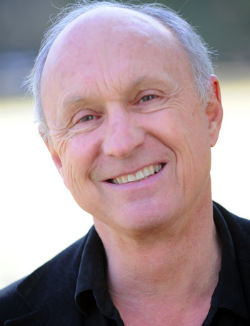On July 17 of this year, I journeyed  from Charlottesville Virginia, where I live, to Seattle to have my cervical spine rebuilt at Virginia Mason Medical Center, whose Neuroscience Institute has a national reputation for telling patients they don’t need surgery. It was my fifth complex surgical episode in 29 months, after more than fifty years of great health. My patient experience has been wrenching, and it made me question yet again the conventional wisdom about doctors and patients that dominates much of our current health policy debate.
from Charlottesville Virginia, where I live, to Seattle to have my cervical spine rebuilt at Virginia Mason Medical Center, whose Neuroscience Institute has a national reputation for telling patients they don’t need surgery. It was my fifth complex surgical episode in 29 months, after more than fifty years of great health. My patient experience has been wrenching, and it made me question yet again the conventional wisdom about doctors and patients that dominates much of our current health policy debate.
None of these interventions was remotely elective: head and neck cancer, nerve grafting surgery to restore use of my right hand and a musculoskeletal trifecta- two hip replacements and cervical spine surgery. All five surgeries were successful, and I have fully recovered and returned to my busy life. The technical quality of the surgical care was flawless. Only three of the people who touched me were over forty, and three of the procedures were performed by women. It was stirring to watch and be helped by the remarkable teams and the teamwork they displayed.
In retrospect, it was dizzying how fast the acute phase of these interventions was over. I walked on my new hips an hour after waking up, and spent only three nights in the hospital after my spine was rebuilt! Most of the actual recovery, and large amount of the clinical risk, actually took place out of the hospital, placing a premium on preparing me and my family for the transition.
No analysis of my prior health history or my genome would have predicted or helped prevent the past 29 months (sorry, Watson!). Absent these procedures, I would either be dead or confined to my back porch in a wheelchair. I shudder to think what would have happened to me if I was seven years younger and, like millions of older Americans pre-Medicare, lacked health insurance
My experience brought me face to face with the uselessness of the twin narratives that have seized control of our national dialog on healthcare. Most health policy in the US over the past forty years has been driven by two warring economic theories that blame our health cost problem on moral failure by patients or by physicians and the care system.
Conservatives blame patients both for their own poor health and a lack of thoughtfulness of healthcare use, resulting in higher costs. Much of the recent failed Republican ObamaCare Repeal and Replace legislation was aimed, rhetorically at least, at “empowering” patients to be more “responsible consumers”. Progressives blame physicians and a mercantile care system for driving up costs by doing things to patients that aren’t needed to drive up their incomes. This led to an explosion of arcane new payment schemes and an avalanche of new physician and hospital reporting requirements during the Obama years.
As a patient, I found both of the conservative and progressive narratives not only not descriptive of what I experienced, but also demeaning to me and to my care teams. On my part, I did everything conservative policy analysts would have insisted that I do. I am a gym rat who works out five days a week and am in better physical condition than most people twenty years my junior. I also exhausted the complementary medicine and pain control alternatives to surgery and only turned to acute intervention when the pain or threat to my life or functionality became untenable.
Neither did I evade economic responsibility for the cost of my care. When I turned 65, I opted out of the antiquated regular Medicare program and enrolled in an HMO-style Medicare Advantage Plan. I had a whole hide worth of “skin in the game”: a $6700 front end out of pocket liability. I also tried to find information on provider, government and consumer websites that would have enabled me to “shop” for care. I knew where to look, and found nothing online or anywhere else that made my decisions easier or more rational. I had to rely on my personal relationships from forty years of working in the health field to find the right people to help me.
As far as the progressive narrative about income maximizing clinicians and hospitals, as far as I could tell, the people I trusted to take care of me did not spend thirty seconds thinking about their incomes or how to pad them. They were focused with laser intensity on helping me, and redeeming my trust in them. It is tragic how much of their time has been diverted from direct care into sitting in front of a computer elaborately documenting what they did to me. Less than half of the time of my nursing staffs was devoted to direct patient care; you could feel the computer beckoning to them virtually non-stop during their shifts and even after.
It is time for policymakers to treat us patients with more respect and our caregivers with greater thoughtfulness. Most public health experts believe that the contribution that patient and physician behavior make to health costs is dwarfed by the health effects of “social determinants” like poverty, homelessness, poor nutrition, food insecurity, broken homes, and crime, and the onslaught of chronic illnesses like arthritis and degenerative diseases of the nervous system which are inevitable correlates of aging.
By failing to confront and effectively manage the declining functionality of our own bodies as we age, we deny the inevitable and unavoidable. And by blaming doctors and patients for our health cost problems, we evade responsibility for the crumbling society that damages our citizens and drives many needlessly into an expensive care system.
This does not mean that there are not mercantile corners of our health system where money matters, and influences care decisions. We can minimize the damage they do with better fraud and abuse enforcement and by repricing (e.g. reducing the fees for) grossly overpriced services to eliminate perverse incentives. It also doesn’t mean that people cannot take better care of themselves.
But to pretend that we can fix what ails our health system by finding the perfect economic incentives to animate doctors and patients is not only a waste of scarce policy and political bandwidth. It is fundamentally insulting to those who use the health system and those who help us. We patients are not greedy “consumers” trying to maximize our health benefit; rather we are frightened people seeking to regain control over our lives. Our caregivers are there because they want to help us do that.
Jeff Goldsmith is President of Health Futures, a strategy consultancy and Associate Professor, Public Health Sciences, University of Virginia.
